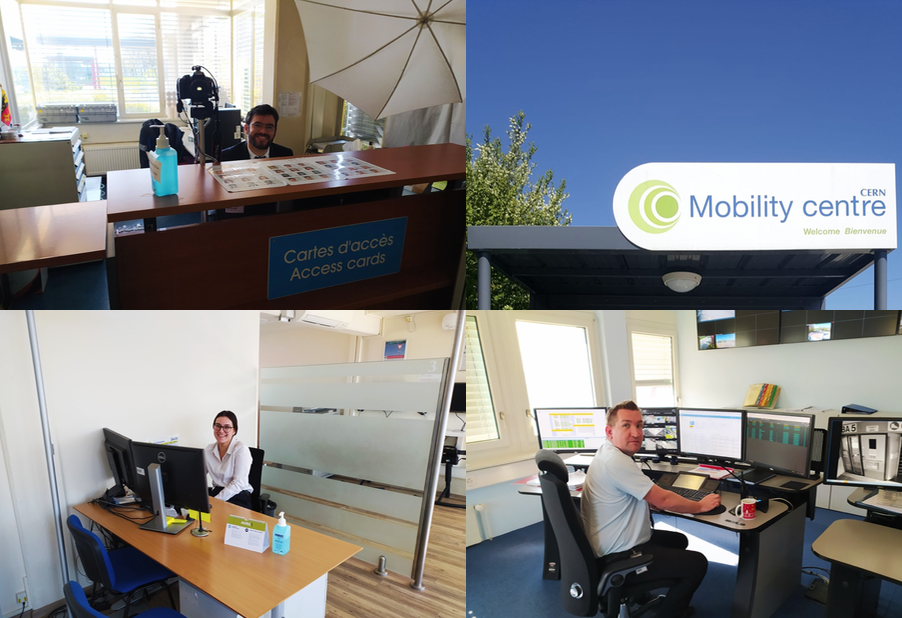In a series of articles, we’re exploring how the various CERN services are adapting to a different environment and working conditions.
This week, we’re taking a look at some of the teams in the SMB (Site Management and Buildings) department. Many of the department’s contractors and some of its personnel are responsible for services, logistics and building maintenance, which makes it difficult for them to work from home at their computer. In addition, the status of employees and contractors during the lockdown period depends a lot on the companies that employ them, under contracts that link them to CERN. Solutions involving a mixture of presence on site and partial furloughing have had to be found to allow the strict safety conditions to be respected and a limited range of services to be provided (see the list of services on the SMB website).
Many difficult decisions have had to be made, but for Gilles Bollinger, who is in charge of mobility services and the mail service, “ensuring people’s health and safety has been our primary concern”. With the number of employees reduced to one-third of the usual levels for both the mobility and the mail services, interpersonal contact is automatically reduced. Next comes ensuring that protective measures are followed by providing the necessary tools to protect against the virus as far as possible, such as alcohol-based gel and gloves.
The rotation of those working on site also contributes to the fight against the spread of the epidemic within CERN. As well as limiting contamination, this approach should contribute to equality between the members of the services by ensuring that no-one is furloughed for an extended period. The same approach of rationing work is being followed in the registration and locks and keys teams led by Didier Constant, CERN’s head of security. Nonetheless, Building 55 remains open, with three people present between 7.30 a.m. and 5.30 p.m. In Constant’s view, the number of workers needs to be adapted to the requirements of the situation: the frequency of patrols by the security guards has been increased to reduce the risk of thefts that might occur due to the absence of the personnel.
“Although our entry into safe mode was very sudden, the exit will be very gradual and will depend on the evolution of operational requirements,” says Gilles Bollinger. While we await the gradual restart of activities, Didier Constant invites us to acknowledge the courage of those who need to come to CERN regularly: “Like everyone, the members of the teams are worried and have lots of questions. However, even though they’re on the front line and some of them have to travel by public transport, they still come to work. And that deserves the gratitude of everyone at CERN.”

